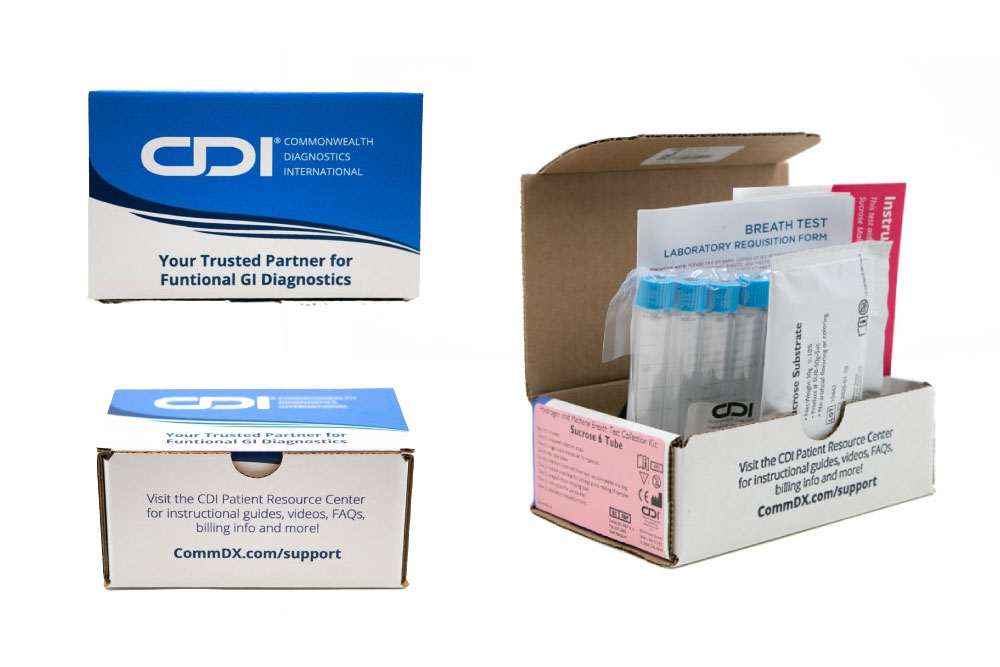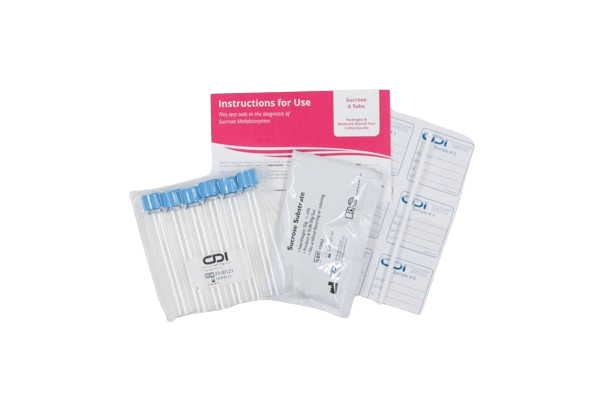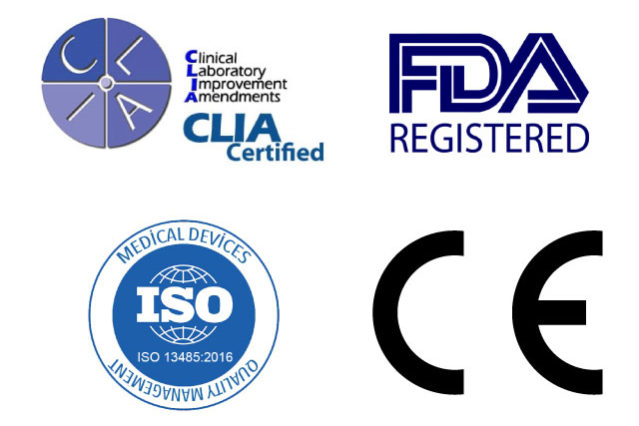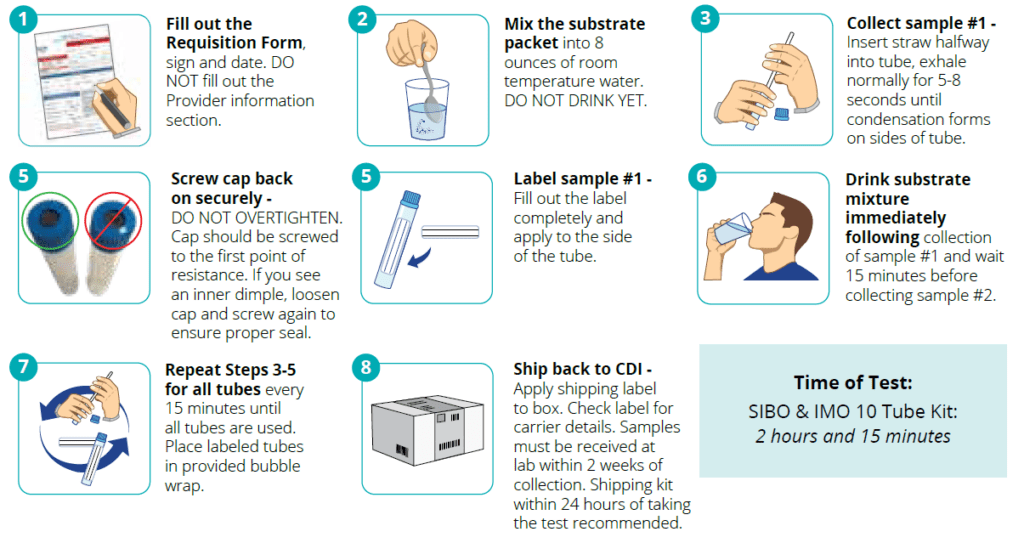Sucrose, commonly known as table sugar, is a fundamental part of many diets but can become a source of discomfort when not digested adequately due to insufficient enzyme activity. Sucrose Malabsorption occurs when there is a deficiency of the enzymes needed to break down sucrose, leading to uncomfortable gastrointestinal symptoms that can affect adults and pediatric patients.
CDI offers the Hydrogen and Methane 6 Tube Breath Test for Sucrose Malabsorption, a state-of-the-art, non-invasive diagnostic approach that caters to the unique needs of both adult and pediatric GI patients. This test is specifically designed to detect disruptions in sucrose processing, enabling healthcare providers to develop personalized management plans.
Why Choose CDI’s Breath Test for Sucrose Malabsorption?
- Accurate Diagnostic Clarity: Our test measures hydrogen and methane levels produced by gut bacteria due to unmetabolized sucrose, providing direct insights into the efficiency of sucrose digestion.
- Alleviation of Symptoms: Proper diagnosis with our breath test facilitates targeted dietary recommendations that can significantly reduce symptoms like bloating, diarrhea, and flatulence, enhancing the patient’s quality of life.
- Child-Friendly and Non-Invasive: Focusing on patient comfort, our breath test avoids invasive procedures, making it especially suitable for children and ensuring a stress-free testing experience.
- Applicable for All Ages: Our test is designed to be effective for adults and children, ensuring that patients of any age can receive the necessary diagnosis and care for Sucrose Malabsorption.
- Backed by Research: Our breath test is supported by thorough scientific validation. It is a reliable asset for gastroenterologists, facilitating evidence-based clinical decisions.
The Hydrogen and Methane 6 Tube Breath Test for Sucrose Malabsorption by CDI is critical for diagnosing and managing dietary sugar issues effectively. It helps healthcare professionals provide a clearer path to better gastrointestinal health and overall patient well-being.
Enhance GI health with CDI’s precision. Discover how incorporating this innovative diagnostic solution into your practice can lead to more precise treatments and happier, healthier patients.






